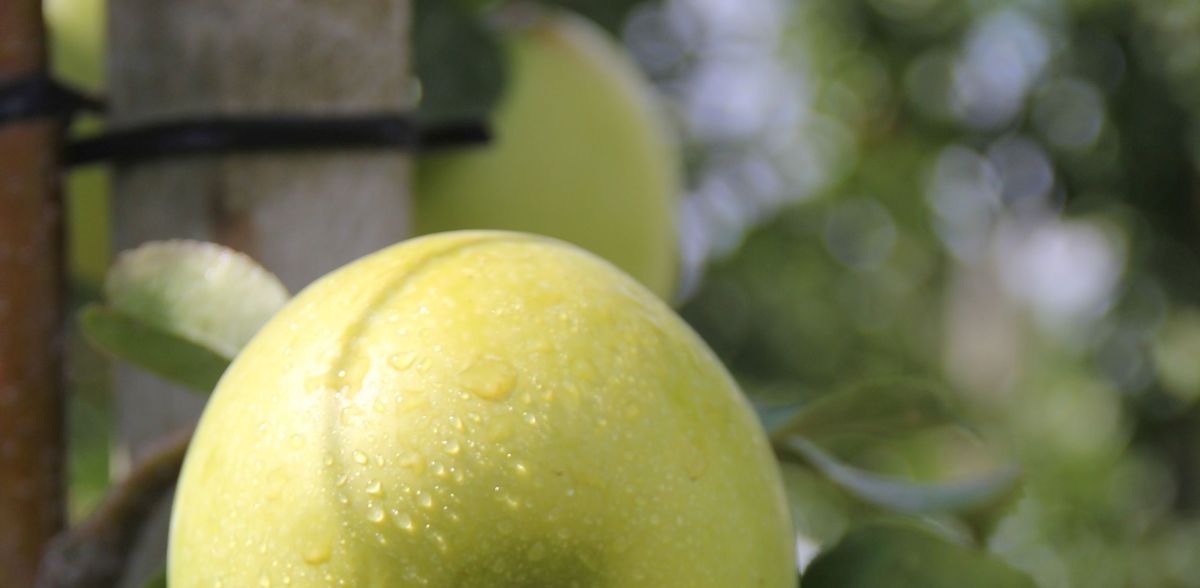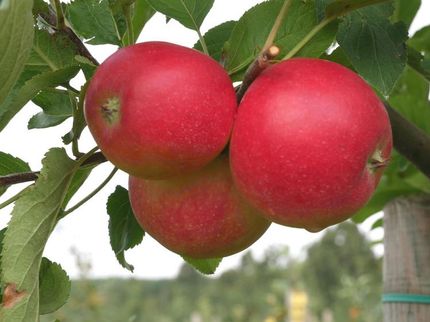Green, sweet and crisp - New apple variety Pia41 approved
The apple bred at the Julius Kühn Institute receives variety protection
Advertisement
A green-yellow skin, juicy-crisp flesh and a sweet taste with intense aroma, these are the salient features of Pia41. The apple has now been granted plant variety protection. It was bred in Dresden-Pillnitz at the Julius Kühn Institute (JKI). In addition to the above-mentioned properties, the Federal Research Institute for Cultivated Plants attaches particular importance to resistance to plant diseases in its breeding programs. Pia41 has inherited from its parents resistance to apple scab caused by a fungus. This makes it possible to save on fungicides in cultivation. "Even when it was founded more than 100 years ago, our institute focused on resistance breeding," says Prof. Henryk Flachowsky, head of the JKI Institute for Breeding Research on Fruit in Dresden-Pillnitz. "We have retained this focus. It is all the more gratifying when we succeed in combining disease resistance with other properties that are important for sales, such as appearance, taste and storability. This increases the chance that resistant varieties like Pia41 can establish themselves on the market," explains Prof. Flachowsky.
As licensor, the JKI has granted licensee Herbert Knuppen of Neue Obstsorten und Beratung the exclusive right to produce fruit trees of the contract variety and to sell them within the EU and Switzerland.
The variety blooms medium early and is ripe at the beginning of October. This makes it one of the late autumn apples and it is harvested somewhat later than Elstar or Gala, but earlier than Braeburn. The fruit stores very well and will keep in refrigerated, gas-tight storage without loss of quality until spring.
Rare source of scab resistance
In greenhouse trials, the cultivar was found to be free of infestation after artificial inoculation with the apple scab pathogen, although the isolate used is capable of overcoming the most important resistance gene of apple cultivars grown in Germany (see background). Pia41 probably owes this protection to the variety Honeycrisp in its pedigree. The resistance of the latter is attributed to other genes that are hardly common in Europe. At least one of these genes has been inherited by Pia41. However, since these results were not yet secured when the application for plant variety protection was filed, the new variety was given the prefix Pi (for Pillnitz). Scab-resistant varieties from the JKI usually carry the prefix Re (for resistance) in their names.
Note: This article has been translated using a computer system without human intervention. LUMITOS offers these automatic translations to present a wider range of current news. Since this article has been translated with automatic translation, it is possible that it contains errors in vocabulary, syntax or grammar. The original article in German can be found here.





























































